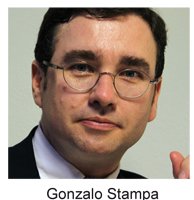Litigation as a strategy in a more challenging commercial environment – Araoz & Rueda
The use of litigation to assert a commercial position is increasing as is the demand for more certainty in costs
El contexto actual en España, ha conllevado un crecimiento en el número de conflictos y litigios entre las empresas. Las dificultades financieras y la crisis económica ha dejado a muchas empresas luchando por sobrevivir y cada vez son más los que recurren a los tribunales como válvula de escape. Se están utilizando los procesos litigiosos como herramienta estratégica para retrasar acontecimientos, afirma Alejandro Fernández de Araoz e Íñigo Rodríguez-Sastre, de Araoz & Rueda.
It is no surprise that the challenging commercial environment in Spain has led to a rise in corporate disputes. The squeeze on finances and the economic slump have left many companies fighting for survival and businesses are increasingly turning to the courts for relief, but businesses are being more selective about what battles they fight.
Alejandro Fernández de Araoz, Partner at Madrid-based Araoz & Rueda, says that Spain’s financial turmoil continues to keep his firm active with the litigation team second only to the M&A department in terms of volume of work during 2011.
“We have seen an increase in the profile and number of specific types of litigation related to the economic situation,” he comments.
He gives the example of companies increasingly now using litigation as a tactic to attempt to either renegotiate or exit an existing agreement. This has resulted in deeper contractual scrutiny with every single clause in an agreement being inspected to see if there is an escape route.
“We have seen plaintiffs challenge contracts stating that they were signed on the basis of reasonable market conditions, which since the onset of the recession is no longer the case,” says de Araoz.
“As such, they claim that no-one could have anticipated the current economic turmoil so the agreement should be cancelled or that they are entitled to reduced payments.”
Litigation centred on such economic considerations is rising across Spain. Parties unable to pay bills are using the courts to stall enforcement processes and hoping that the other side will settle for a lower payment, he says. In addition, companies are attempting to avoid insolvency by launching court action as a way to stave off administrators and buy more time to resolve financial difficulties.
“Litigation is being used by companies as a means to prolong their existence because cases can drag on for years, which gives them more room to manoeuvre,” he adds.
The troubled banking sector, which has undergone major restructuring after the collapse of many local saving banks (cajas), has also found itself under the spotlight. Many investors who were sold complex derivatives-based structured financial products in the boom times – and often benefitted from them – are now suing banks after the deals turned bad.
“Plaintiffs are claiming that they were mis-sold products or that they were not given a proper explanation of how the products worked and thus did not understand the risks involved,” says fellow Partner Íñigo Rodríguez-Sastre.
De Araoz is quick to point out however, that plaintiffs are not filing claims without careful thought. The loser often ends up with a heavy costs order, which “dissuades pointless cases”. Even so, while the recession has seen a surge in litigation in a bid for financial compensation, both plaintiffs and defendants are looking to reduce the costs associated with litigation.
Cients increasingly want to manage litigation in the most cost-effective manner, agrees Rodríguez-Sastre. First, they are settling sooner rather than later – it makes more economic sense to make a reduced payment to a plaintiff than take a case through a lengthy court process – and second, the mechanisms used to pay lawyers are also changing.
“Spanish clients increasingly struggle with the concept of litigation fees but are clearly now less willing to pay lawyers by the hour. More often we receive requests for fixed rates or a closed quote in order to better balance their costs.”
Rodríguez-Sastre and de Araoz acknowledge that the cost of litigation is a hot topic throughout Europe, and that in jurisdictions such as the UK reforms are underway which will ban the “loser pays” concept as well as “no win, no fee” contingency payment plans.
“Contingency fees were prohibited for a long time in Spain and were only allowed following a Supreme Court decision a few years ago. We may see a rise in requests for the use of contingency payments, including through success fees, but regardless why a client chooses litigation, most now want more certainty on costs,” concludes Rodríguez-Sastre.











